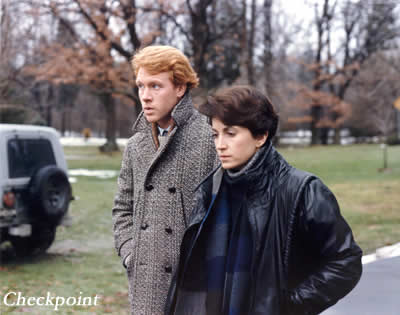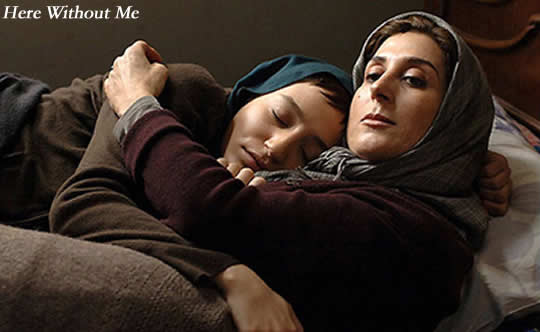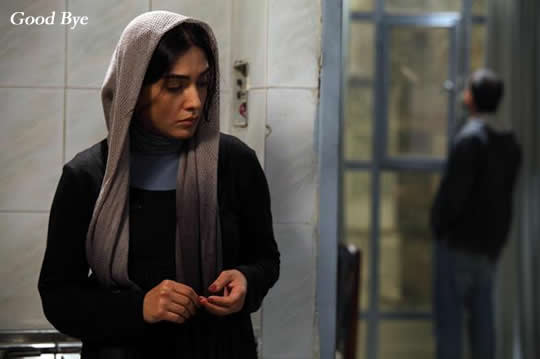 A few days ago and after posting my interview with Parviz Sayyad, the Iranian filmmaker, Shannon Kelley, Head of Public Programs at UCLA Film & Television Archive, contacted me to clarify a few issues that was discussed in my interview with Mr. Sayyad.
A few days ago and after posting my interview with Parviz Sayyad, the Iranian filmmaker, Shannon Kelley, Head of Public Programs at UCLA Film & Television Archive, contacted me to clarify a few issues that was discussed in my interview with Mr. Sayyad.
I also used this opportunity to ask a few questions from Shannon about UCLA Celebration of Iranian Cinema.
Bijan Tehrani: I know one of the reasons we are doing this interview is to give more information about the UCLA Celebration of Iranian Cinema for 2012 and also you had some comments on CWB’s interview with Parviz Sayyad’s I believe?
Shannon Kelley: It was a very interesting interview and it is exciting to collaborating with Mr. Sayyad in this program. A couple of things about changing the dates for the screenings: this actually was a matter of convenience. UCLA is closed during the holiday season, so it is hard to get an ambitious program together during that time which might involve international travel arrangements. So for our own logistical reasons we moved out of February, which had been otherwise very successful for us with the local audience, and we moved into April. There was nothing symbolic in the move and while we have been aware of significant dates, we have never programmed on any special day, and having the program be in February was, I believe, a coincidence. We are doing a film activity and a cultural activity and, so we are just trying to keep it on that plane. 
BT: There was also another mention about how the Iranian government is sponsoring a lot of international events involving films made in Iran.
SK: To my knowledge they have not been contacted, nor have any arrangements been made with the Iranian government as such. I certainly have not knowingly had contact with anyone in the Iranian government. Of course, in many countries the government sometimes takes a role in the cultural industries. For instance in many developing countries the government may be involved in granting money to filmmakers and setting up distribution services. As you know in Iran the government is involved in approving and withholding approval of certain film activities.
What I am looking for is interesting, illuminating films that provoke discussion and stand out as especially beautiful, complex and enlightening. I would not probably force a proscription against a film because of the channel from which it came to me; it is not the first thing on my mind. I also would not restrict myself from showing a film because someone disapproved of it. In settings where people have had to deal with government structures, some have also found a way to deal intelligently within them, in order to get their point of view expressed in spite of the circumstances. There have indeed been historic cases in national cinemas where perhaps even the government officials themselves did not understand what they were putting into the world. Regarding the communist regimes of the Soviet Union and several Eastern European countries, we still show some of those films for their great beauty and for the things that they show us about those times–and actually, for the things that they show us by their limitations. I try to read the film first however it comes to me, see what it seems to be saying and treat it as a work of art. At the same time we are aware of the situation of filmmakers in different national contexts, and not trying to hide our eyes from these facts either. So this is a human activity but it is also an artistic activity and a historic one.
 BT: Please tell us about why before this year there were not any films from filmmakers in exile at the UCLA celebration of Iranian Cinema?
BT: Please tell us about why before this year there were not any films from filmmakers in exile at the UCLA celebration of Iranian Cinema?
SK: It is not a thing that we were actively, consciously “not” doing. Typically we have been so fascinated at the prospect of having images and new voices from inside Iran that I think it has been a very, very sharp focus for a long time–whereas both the areas of historical programming and the Diaspora also reveal very interesting things that seem very important to the conversation around Iranian cinema. We decided, let’s allow ourselves to structure these voices into our program, and especially when faced with the reality of a treasure like Mr. Sayyad right here in our community and the opportunity to show his work, it seemed like not only could we afford to stretch a little bit but it would be silly of us not to take advantage of his presence sooner or later!
BT: Please tell us a little bit about the films that will be screened at the festival and the guest filmmakers who are coming to the festival?
SK: We have one filmmaker coming to the festival this year. He is the director to the opening night film, “Mourning”: Mr. Morteza Farshbaf. His film is a new film that has been seen a little bit in the United States, but Mr. Farshbaf is still a very new name here. He will be at the screening and staying in town for a few days to meet other professionals and also to represent the voice of someone working within Iran on new and contemporary work that is very interesting and exciting. He has a very original voice and has told a monumentally beautiful story, but very delicately and with very economical means; this is a drama between just three people that is very rich and rewarding. I think that people are going to love this film.
BT: Any other films that will be screened besides the films of Sayyad and Farshbaf?
SK: Yes, we have a wonderful film, it is a very surprising one, it is called “Here without Me” by Bahram Tavakoli and this is a wonderful family drama that plays a very incisive portrait of family dynamics in contemporary Iran. In watching it you come to understand that it is an adaption of a famous American play; “The Glass Menagerie” by  Tennessee Williams. The transposition of the one story into the new context is very ingenious, and so rewarding that even if you do not know about the play it is a wonderful drama. It stars Fatemeh Motemed-Aria; she plays the central figure, the mother in this story, around whose life and her children’s lives revolve. We are also showing the film “Goodbye” by Mohammad Rasoulof. We have shown his work before. Last year we had “The White Meadows.” Mr. Rasoulof is a very magical storyteller in the way he wields metaphorical symbols. This is a literal story about the situation of a woman who has been proscribed from practicing law by the government. Her dilemma is what to do next with herself, and find where she can be a professional person and live her life as she wishes. It is stated in such elegant and beautiful terms, it’s another example of this filmmaker’s mastery. We like to track new artists, but it is also nice to follow interesting careers and we are always anticipating what he will be doing next. His film is paired in a single program with Mr. Jafar Panahi’s “This is Not a Film” which has been somewhat seen here in town but the two films speak to each other very eloquently and of course, to the present situation of both Mr. Rasoulof and Mr. Panahi who are the best known guys in the world who face this political challenge of being able to operate independently when it is necessary to seek official approval for the creative work that you do in Iran.
Tennessee Williams. The transposition of the one story into the new context is very ingenious, and so rewarding that even if you do not know about the play it is a wonderful drama. It stars Fatemeh Motemed-Aria; she plays the central figure, the mother in this story, around whose life and her children’s lives revolve. We are also showing the film “Goodbye” by Mohammad Rasoulof. We have shown his work before. Last year we had “The White Meadows.” Mr. Rasoulof is a very magical storyteller in the way he wields metaphorical symbols. This is a literal story about the situation of a woman who has been proscribed from practicing law by the government. Her dilemma is what to do next with herself, and find where she can be a professional person and live her life as she wishes. It is stated in such elegant and beautiful terms, it’s another example of this filmmaker’s mastery. We like to track new artists, but it is also nice to follow interesting careers and we are always anticipating what he will be doing next. His film is paired in a single program with Mr. Jafar Panahi’s “This is Not a Film” which has been somewhat seen here in town but the two films speak to each other very eloquently and of course, to the present situation of both Mr. Rasoulof and Mr. Panahi who are the best known guys in the world who face this political challenge of being able to operate independently when it is necessary to seek official approval for the creative work that you do in Iran.
BT: How can audiences go about attending the festival and getting tickets or passes for the shows?
SK: All of the programs will take place at the Billy Wilder theatre at UCLA and it is easy to get tickets at our website at www.cinema.ucla.edu, you can also purchase tickets at the box office.

